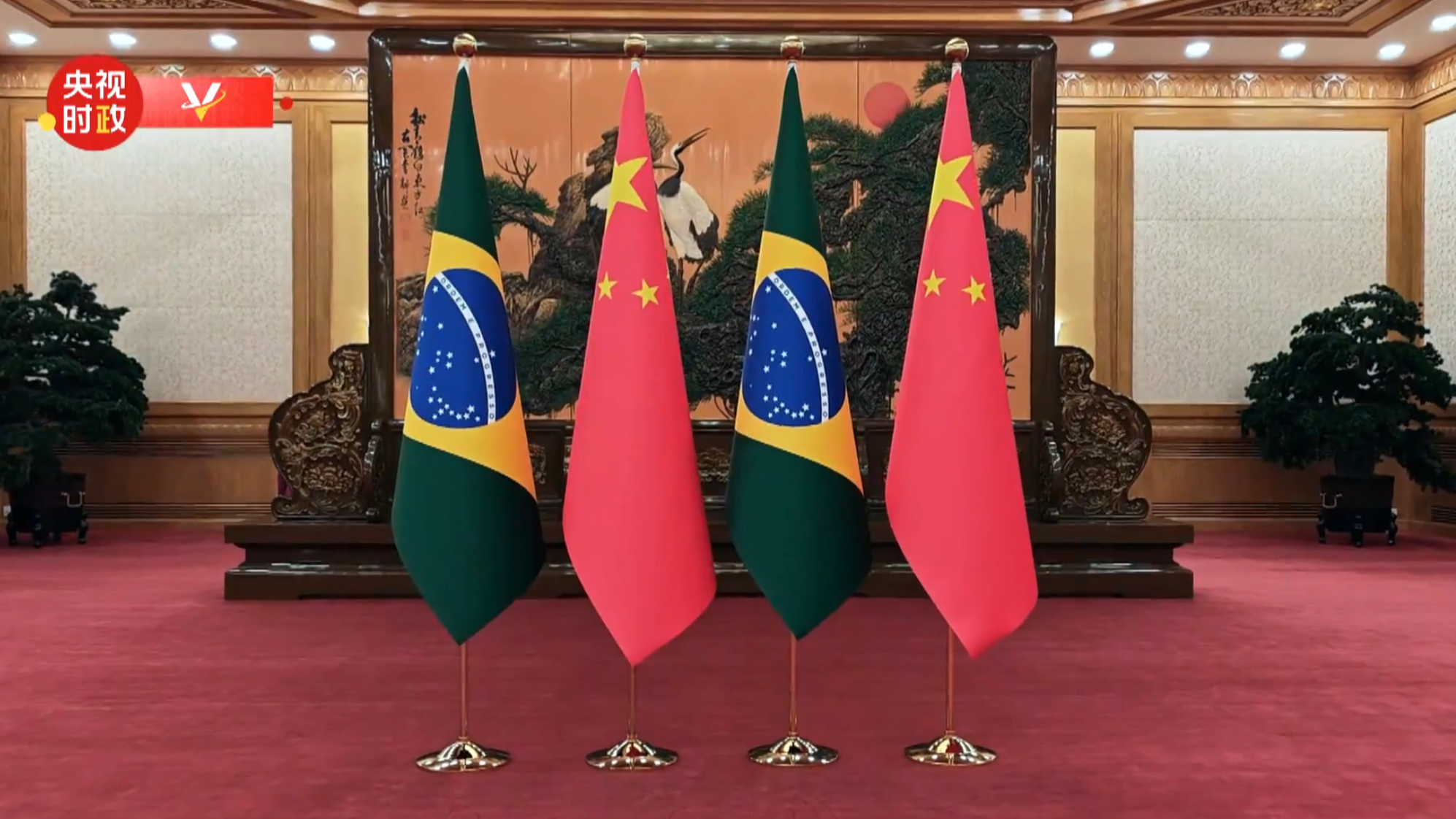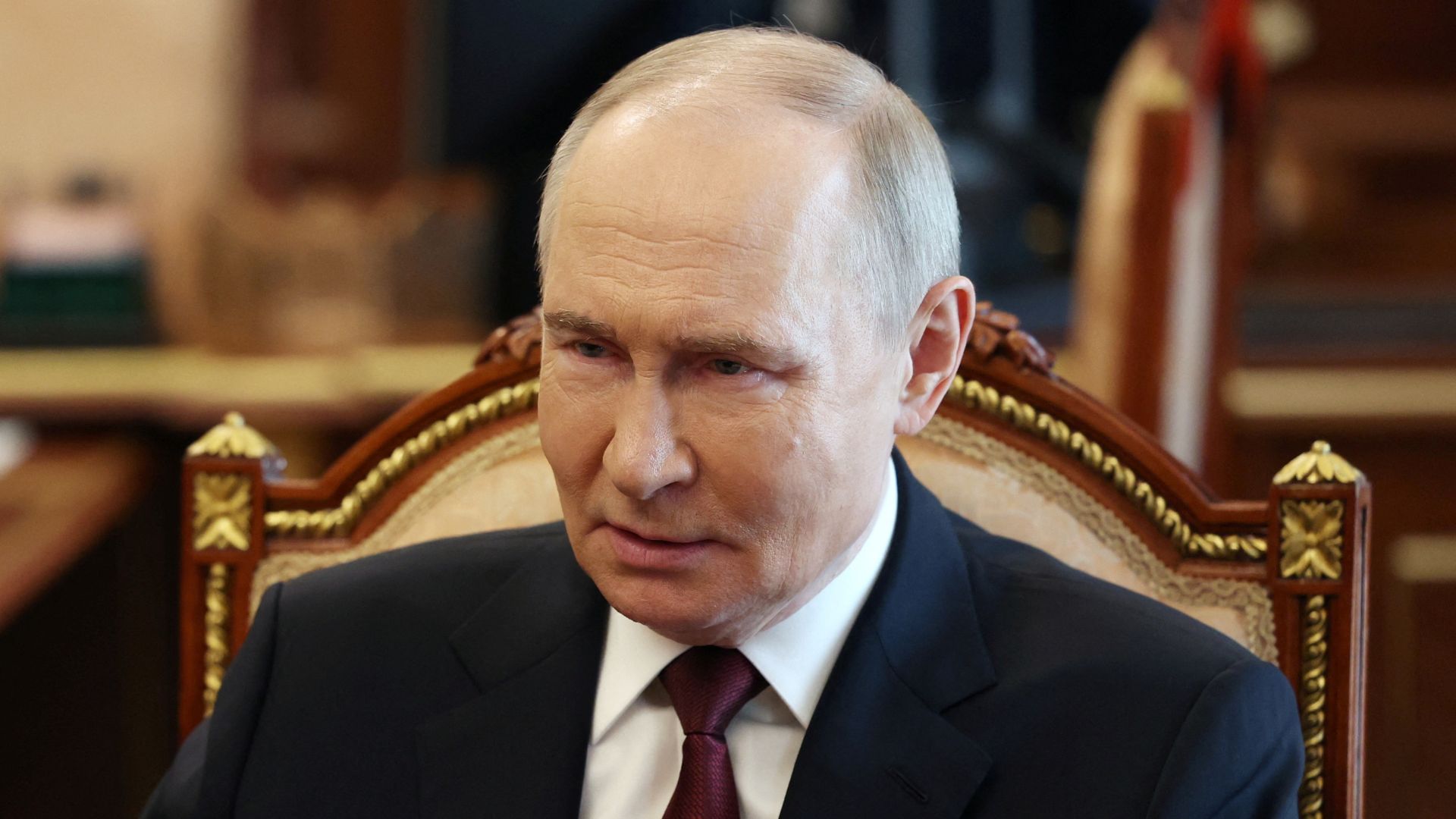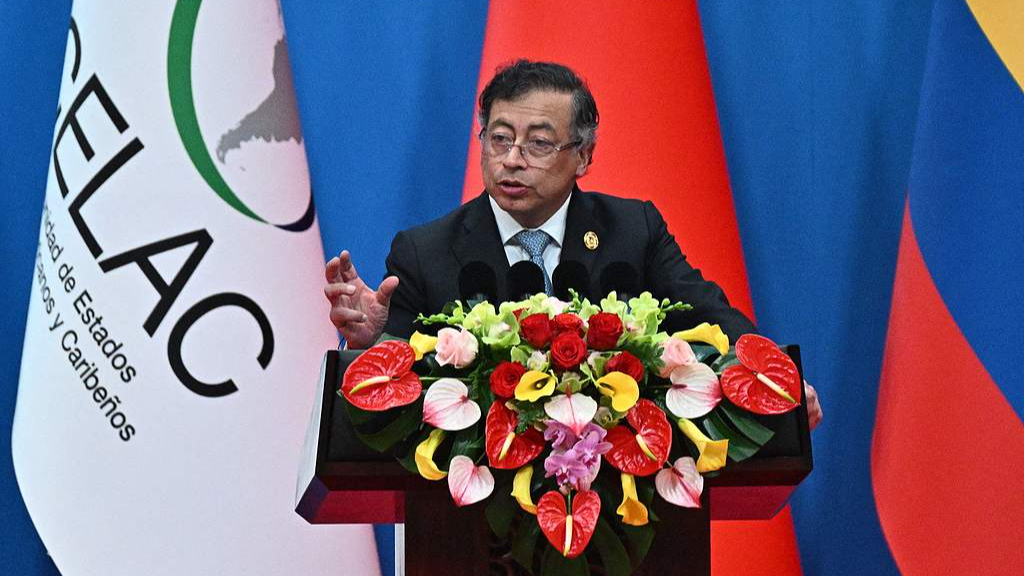By continuing to browse our site you agree to our use of cookies, revised Privacy Policy and Terms of Use. You can change your cookie settings through your browser.
I agree
Search Trends
CHOOSE YOUR LANGUAGE
- Albanian Shqip
- Arabic العربية
- Belarusian Беларуская
- Bengali বাংলা
- Bulgarian Български
- Cambodian ខ្មែរ
- Croatian Hrvatski
- Czech Český
- English English
- Esperanto Esperanto
- Filipino Filipino
- French Français
- German Deutsch
- Greek Ελληνικά
- Hausa Hausa
- Hebrew עברית
- Hungarian Magyar
- Hindi हिन्दी
- Indonesian Bahasa Indonesia
- Italian Italiano
- Japanese 日本語
- Korean 한국어
- Lao ລາວ
- Malay Bahasa Melayu
- Mongolian Монгол
- Myanmar မြန်မာဘာသာ
- Nepali नेपाली
- Persian فارسی
- Polish Polski
- Portuguese Português
- Pashto پښتو
- Romanian Română
- Russian Русский
- Serbian Српски
- Sinhalese සිංහල
- Spanish Español
- Swahili Kiswahili
- Tamil தமிழ்
- Thai ไทย
- Turkish Türkçe
- Ukrainian Українська
- Urdu اردو
- Vietnamese Tiếng Việt
Copyright © 2024 CGTN.
京ICP备20000184号
CHOOSE YOUR LANGUAGE
- Albanian Shqip
- Arabic العربية
- Belarusian Беларуская
- Bengali বাংলা
- Bulgarian Български
- Cambodian ខ្មែរ
- Croatian Hrvatski
- Czech Český
- English English
- Esperanto Esperanto
- Filipino Filipino
- French Français
- German Deutsch
- Greek Ελληνικά
- Hausa Hausa
- Hebrew עברית
- Hungarian Magyar
- Hindi हिन्दी
- Indonesian Bahasa Indonesia
- Italian Italiano
- Japanese 日本語
- Korean 한국어
- Lao ລາວ
- Malay Bahasa Melayu
- Mongolian Монгол
- Myanmar မြန်မာဘာသာ
- Nepali नेपाली
- Persian فارسی
- Polish Polski
- Portuguese Português
- Pashto پښتو
- Romanian Română
- Russian Русский
- Serbian Српски
- Sinhalese සිංහල
- Spanish Español
- Swahili Kiswahili
- Tamil தமிழ்
- Thai ไทย
- Turkish Türkçe
- Ukrainian Українська
- Urdu اردو
- Vietnamese Tiếng Việt
Copyright © 2024 CGTN.
京ICP备20000184号
互联网新闻信息许可证10120180008
Disinformation report hotline: 010-85061466



















Ukrainian President Volodymyr Zelenskyy said Russian forces had launched 26 attacks since the ceasefire began. /Reuters
An Easter ceasefire declared by Russian President Vladimir Putin fell apart within hours on Sunday, as both Moscow and Kyiv accused each other of violating the brief pause in fighting.
The pause in hostilities was announced by Putin ahead of Orthodox Easter. But by midday, Ukrainian President Volodymyr Zelenskyy said Russian forces had launched 26 attacks since the ceasefire began.
"Russia is only pretending to observe the ceasefire," Zelenskyy wrote on social media. "Either Putin doesn't control his military, or he's only interested in positive PR—not peace."
An Easter ceasefire declared by Russian President Vladimir Putin fell apart within hours on Sunday. /Reuters
Russia's Defence Ministry responded by claiming Ukraine had broken the ceasefire more than 1,000 times. They said Ukrainian forces launched 444 attacks on Russian positions and carried out over 900 drone strikes, including in Crimea and Russia's border regions.
Both sides reported damage and civilian casualties, but neither claim has been independently verified. Ukrainian military officials said activity on the front line had decreased overall, and some Russian military bloggers reported the same.
The failed ceasefire adds another complication to U.S. President Donald Trump's push to broker a peace deal. Trump and Secretary of State Marco Rubio said Friday that the U.S. may walk away from mediation efforts unless progress is seen soon.
Trump recently backed a 30-day ceasefire proposal, which Ukraine has conditionally accepted. Putin cited unresolved verification issues and ordered Russian forces to be ready to respond if Ukraine violated the truce.
While both sides previously agreed to avoid targeting energy infrastructure and maritime routes, accusations of violations continue.